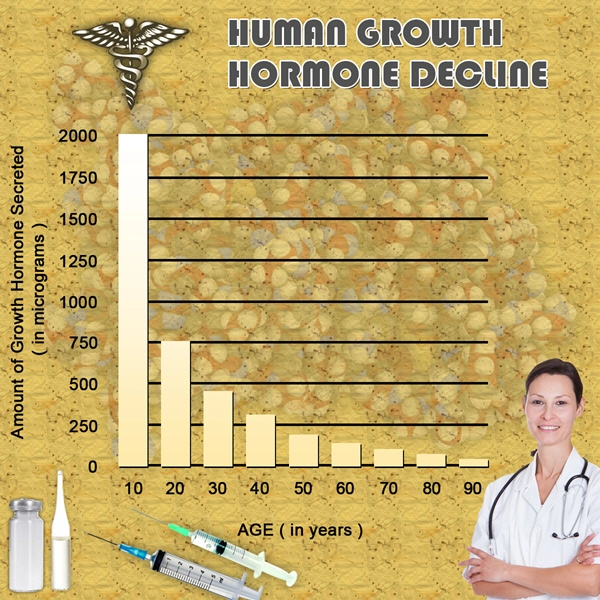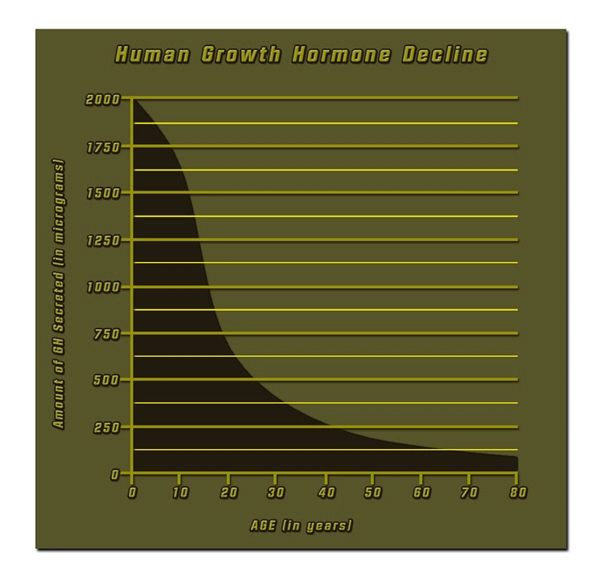Introduction to Hypogonadism
Hypogonadism, a condition characterized by the body's inability to produce adequate levels of testosterone, affects a significant number of American males. This hormonal imbalance can lead to a variety of symptoms, including decreased libido, fatigue, and mood disturbances. Understanding the nuances of hypogonadism is crucial for effective management and improved quality of life.
Diagnosis of Hypogonadism
The diagnosis of hypogonadism begins with a thorough medical history and physical examination. Symptoms such as decreased sexual desire, erectile dysfunction, and reduced muscle mass are key indicators that prompt further investigation. Blood tests measuring total testosterone levels are essential, with readings typically taken in the morning when levels are highest. According to the Endocrine Society, a total testosterone level below 300 ng/dL on two separate occasions warrants a diagnosis of hypogonadism.
Monitoring Testosterone Levels
Once diagnosed, regular monitoring of testosterone levels is vital to ensure optimal treatment outcomes. The American Urological Association recommends follow-up blood tests every 3 to 6 months during the first year of testosterone therapy. After the initial year, annual testing is sufficient for most patients. Monitoring not only helps in adjusting dosages but also in preventing potential side effects such as polycythemia, a condition characterized by an increase in red blood cell count.
Best Practices in Treatment
Treatment for hypogonadism typically involves testosterone replacement therapy (TRT). Options include injections, gels, patches, and pellets, each with its own set of advantages and considerations. The choice of therapy should be individualized, taking into account the patient's lifestyle, preferences, and any underlying health conditions. Regular consultations with healthcare providers are crucial to assess the efficacy of the chosen treatment and to make necessary adjustments.
Managing Side Effects and Complications
While TRT can significantly improve symptoms of hypogonadism, it is not without potential side effects. Common issues include skin irritation at the application site, fluctuations in mood, and sleep apnea. More serious complications, such as cardiovascular events and prostate enlargement, require vigilant monitoring and management. Patients should be educated on recognizing and reporting any adverse effects promptly.
Lifestyle Modifications and Support
In addition to medical treatment, lifestyle modifications play a pivotal role in managing hypogonadism. Regular exercise, a balanced diet, and adequate sleep can enhance the effectiveness of TRT and improve overall well-being. Support from healthcare professionals, including endocrinologists and urologists, as well as mental health support, can provide comprehensive care for those affected by hypogonadism.
Guidelines for Long-Term Management
Long-term management of hypogonadism involves ongoing assessment and adjustment of treatment plans. The American Association of Clinical Endocrinologists suggests that patients undergo periodic evaluations to monitor bone density, cardiovascular health, and prostate health. These assessments help in mitigating long-term risks associated with TRT and ensuring sustained benefits.
Conclusion
Hypogonadism is a manageable condition with the right approach to diagnosis, treatment, and monitoring. American males affected by this condition can lead fulfilling lives with the help of personalized medical care and lifestyle adjustments. Staying informed about the latest guidelines and best practices is essential for both patients and healthcare providers to achieve the best possible outcomes.
By adhering to these comprehensive guidelines and maintaining regular communication with healthcare professionals, individuals with hypogonadism can effectively manage their condition and enjoy a higher quality of life.

- Hypogonadism and Sleep Disorders: A Bidirectional Link in American Males [Last Updated On: February 18th, 2025] [Originally Added On: February 18th, 2025]
- Unveiling the Link Between Hypogonadism and Mental Health: A Comprehensive Guide for American Males [Last Updated On: March 11th, 2025] [Originally Added On: March 11th, 2025]
- Unveiling the Effects of Hypogonadism on Muscle Vitality in American Males [Last Updated On: March 16th, 2025] [Originally Added On: March 16th, 2025]
- Unraveling the Nexus of Hypogonadism and Autoimmune Diseases: A Comprehensive Guide for American Males [Last Updated On: March 16th, 2025] [Originally Added On: March 16th, 2025]
- Unveiling the Link Between Hypogonadism and Impaired Wound Healing in American Males [Last Updated On: March 16th, 2025] [Originally Added On: March 16th, 2025]
- Unraveling the Nexus of Hypogonadism and Parathyroid Function: Insights for American Males [Last Updated On: March 16th, 2025] [Originally Added On: March 16th, 2025]
- Exercise Boosts Testosterone: Managing Hypogonadism in American Males [Last Updated On: March 18th, 2025] [Originally Added On: March 18th, 2025]
- Hypogonadism's Impact on Liver Function: Management and Monitoring Strategies [Last Updated On: March 18th, 2025] [Originally Added On: March 18th, 2025]
- Hypogonadism and Chronic Pain: Integrated Treatment Approaches for American Males [Last Updated On: March 19th, 2025] [Originally Added On: March 19th, 2025]
- Hypogonadism and Testosterone Therapy: Benefits, Risks, and Considerations for American Males [Last Updated On: March 19th, 2025] [Originally Added On: March 19th, 2025]
- Ethical Considerations in Treating Hypogonadism with Testosterone Therapy in American Men [Last Updated On: March 19th, 2025] [Originally Added On: March 19th, 2025]
- Hypogonadism and Thyroid Dysfunction: Exploring Correlations and Clinical Implications in American Males [Last Updated On: March 20th, 2025] [Originally Added On: March 20th, 2025]
- Hypogonadism and Prostate Health: Understanding Links, Risks, and Management Strategies [Last Updated On: March 20th, 2025] [Originally Added On: March 20th, 2025]
- Understanding Hypogonadism: Causes, Symptoms, and Treatment for American Males [Last Updated On: March 20th, 2025] [Originally Added On: March 20th, 2025]
- Hypogonadism in American Males: Links to Cancer Risk and Management Strategies [Last Updated On: March 20th, 2025] [Originally Added On: March 20th, 2025]
- Hypogonadism's Impact on Men's Health and Quality of Life: Diagnosis, Treatment, and Support [Last Updated On: March 21st, 2025] [Originally Added On: March 21st, 2025]
- Hypogonadism and Autoimmune Disorders: Interplay, Management, and Future Research in American Males [Last Updated On: March 21st, 2025] [Originally Added On: March 21st, 2025]
- Medical Imaging Advances in Diagnosing Hypogonadism: MRI, CT, and Ultrasound Techniques [Last Updated On: March 21st, 2025] [Originally Added On: March 21st, 2025]
- Hypogonadism's Impact on Skin Health in American Males: TRT Benefits and Risks [Last Updated On: March 22nd, 2025] [Originally Added On: March 22nd, 2025]
- Hypogonadism's Impact on Bone Health: Diagnosis, TRT, and Management Strategies [Last Updated On: March 22nd, 2025] [Originally Added On: March 22nd, 2025]
- Managing Hypogonadism: A Collaborative Approach by Medical Specialists [Last Updated On: March 22nd, 2025] [Originally Added On: March 22nd, 2025]
- Exploring Alternative Medicines for Hypogonadism Management in American Males [Last Updated On: March 22nd, 2025] [Originally Added On: March 22nd, 2025]
- Hypogonadism Screening Protocols and Recommendations for American Males [Last Updated On: March 22nd, 2025] [Originally Added On: March 22nd, 2025]
- Hypogonadism in American Males: Addressing Psychological Needs Through Tailored Counseling [Last Updated On: March 23rd, 2025] [Originally Added On: March 23rd, 2025]
- Hypogonadism and Hair Loss: Treatment Options and Outcomes for American Males [Last Updated On: March 23rd, 2025] [Originally Added On: March 23rd, 2025]
- Hypogonadism's Impact on Neurological Health in American Males: Cognitive and Mood Effects [Last Updated On: March 23rd, 2025] [Originally Added On: March 23rd, 2025]
- Hypogonadism's Impact on Gastrointestinal Health in American Males: A Comprehensive Review [Last Updated On: March 24th, 2025] [Originally Added On: March 24th, 2025]
- Hypogonadism and Hearing Loss: Exploring the Hormonal Connection in American Males [Last Updated On: March 24th, 2025] [Originally Added On: March 24th, 2025]
- Managing Hypogonadism in American Males with Kidney Disease: Strategies and Challenges [Last Updated On: March 24th, 2025] [Originally Added On: March 24th, 2025]
- Hypogonadism Treatment Advances: Trends, Therapies, and Lifestyle Interventions [Last Updated On: March 24th, 2025] [Originally Added On: March 24th, 2025]
- Hypogonadism's Impact on Blood Pressure: Symptoms, Management, and Lifestyle Strategies [Last Updated On: March 24th, 2025] [Originally Added On: March 24th, 2025]
- Hypogonadism and Cholesterol: Implications for Cardiovascular Health in American Males [Last Updated On: March 24th, 2025] [Originally Added On: March 24th, 2025]
- Hypogonadism's Impact on Respiratory Health in American Males: Mechanisms and Clinical Insights [Last Updated On: March 24th, 2025] [Originally Added On: March 24th, 2025]
- Medical Innovations Transform Hypogonadism Treatment for American Males [Last Updated On: March 24th, 2025] [Originally Added On: March 24th, 2025]
- Hypogonadism's Impact on Joint Health: Treatment and Management Strategies [Last Updated On: March 25th, 2025] [Originally Added On: March 25th, 2025]
- Hypogonadism and Headaches: Diagnosis, Treatment, and Management Strategies for American Males [Last Updated On: March 25th, 2025] [Originally Added On: March 25th, 2025]
- Medical Nutrition Therapy for Managing Hypogonadism in American Males [Last Updated On: March 26th, 2025] [Originally Added On: March 26th, 2025]
- Hypogonadism's Impact on Muscle Health in American Males: Diagnosis and Treatment Strategies [Last Updated On: March 26th, 2025] [Originally Added On: March 26th, 2025]
- Medical Technology Revolutionizes Hypogonadism Diagnosis in American Males [Last Updated On: March 26th, 2025] [Originally Added On: March 26th, 2025]
- Hypogonadism and Balance Disorders: Exploring the Link and Treatment Options in American Males [Last Updated On: March 26th, 2025] [Originally Added On: March 26th, 2025]
- Hypogonadism and Anemia in American Males: Diagnosis, Management, and Quality of Life [Last Updated On: March 26th, 2025] [Originally Added On: March 26th, 2025]
- Hypogonadism's Impact on Cognitive Function in American Males: A Comprehensive Review [Last Updated On: March 26th, 2025] [Originally Added On: March 26th, 2025]
- Hypogonadism's Impact on Eye Health: A Comprehensive Overview for American Males [Last Updated On: March 26th, 2025] [Originally Added On: March 26th, 2025]
- Medical Rehabilitation for Hypogonadism: Enhancing Quality of Life in American Males [Last Updated On: March 27th, 2025] [Originally Added On: March 27th, 2025]
- Hypogonadism's Impact on Immune Function in American Males: Insights and Therapies [Last Updated On: March 27th, 2025] [Originally Added On: March 27th, 2025]
- Preventing Hypogonadism in American Males: Strategies and Interventions [Last Updated On: March 27th, 2025] [Originally Added On: March 27th, 2025]
- Hypogonadism in Transgender Men: Diagnosis, Treatment, and Personalized Care [Last Updated On: March 27th, 2025] [Originally Added On: March 27th, 2025]
- Hypogonadism's Emotional Impact: Understanding and Managing Mental Health in American Men [Last Updated On: March 27th, 2025] [Originally Added On: March 27th, 2025]
- Hypogonadism and Allergies: Exploring Links and Implications for American Men [Last Updated On: March 27th, 2025] [Originally Added On: March 27th, 2025]
- Hypogonadism's Impact on Dental Health: A Comprehensive Overview for American Males [Last Updated On: March 27th, 2025] [Originally Added On: March 27th, 2025]
- Understanding Hypogonadism: Symptoms, Treatment, and Lifestyle Management for American Males [Last Updated On: March 27th, 2025] [Originally Added On: March 27th, 2025]
- Hypogonadism and GERD: Exploring Hormonal Links and Treatment Implications in American Males [Last Updated On: March 27th, 2025] [Originally Added On: March 27th, 2025]
- Hypogonadism and Vision: Understanding Testosterone's Role and Treatment Strategies [Last Updated On: March 28th, 2025] [Originally Added On: March 28th, 2025]
- Monitoring Hypogonadism in Long-Term Care: Strategies for Enhanced Patient Care [Last Updated On: March 29th, 2025] [Originally Added On: March 29th, 2025]
- Medical Social Workers: Vital Support for Men with Hypogonadism [Last Updated On: March 29th, 2025] [Originally Added On: March 29th, 2025]
- Hypogonadism in American Males: Diagnosis, Treatment, and Management Strategies [Last Updated On: March 30th, 2025] [Originally Added On: March 30th, 2025]
- Managing Hypogonadism-Related Fatigue: Therapies and Lifestyle Strategies [Last Updated On: March 30th, 2025] [Originally Added On: March 30th, 2025]
- Hypogonadism's Impact on Urinary Health: Diagnosis, Management, and Lifestyle Strategies [Last Updated On: April 1st, 2025] [Originally Added On: April 1st, 2025]
- Hypogonadism's Link to Peripheral Neuropathy in American Males: Diagnosis, Treatment, and Research [Last Updated On: April 2nd, 2025] [Originally Added On: April 2nd, 2025]
- Strategies to Enhance Adherence in Hypogonadism Treatment Among American Males [Last Updated On: April 2nd, 2025] [Originally Added On: April 2nd, 2025]
- Hypogonadism Linked to Accelerated Skin Aging in American Men: A Comprehensive Study [Last Updated On: April 4th, 2025] [Originally Added On: April 4th, 2025]
- Hypogonadism's Impact on Sinus Health: Exploring Hormonal Links and Treatment Implications [Last Updated On: April 6th, 2025] [Originally Added On: April 6th, 2025]
- Innovative Medical Devices Revolutionize Hypogonadism Management in American Men [Last Updated On: April 8th, 2025] [Originally Added On: April 8th, 2025]
- Hypogonadism's Impact on Gallbladder Health in American Males: A Comprehensive Overview [Last Updated On: April 8th, 2025] [Originally Added On: April 8th, 2025]
- Hypogonadism in Postmenopausal Women: Symptoms, Treatment, and Support for American Males [Last Updated On: April 9th, 2025] [Originally Added On: April 9th, 2025]
- Hypogonadism's Impact on Nail Health in American Males: Management and Care Strategies [Last Updated On: April 9th, 2025] [Originally Added On: April 9th, 2025]
- Hypogonadism's Impact on Wound Healing in American Males: Testosterone's Crucial Role [Last Updated On: April 9th, 2025] [Originally Added On: April 9th, 2025]
- Hypogonadism Linked to Impaired Lymphatic Function in American Males: Study Insights [Last Updated On: April 10th, 2025] [Originally Added On: April 10th, 2025]
- Empowering Nurses in Hypogonadism Care: Education Strategies and Impact [Last Updated On: April 11th, 2025] [Originally Added On: April 11th, 2025]
- Hypogonadism's Impact on Ear Health: Understanding the Link and Management Strategies [Last Updated On: April 13th, 2025] [Originally Added On: April 13th, 2025]
- Managing Hypogonadism in Men with Chronic Illnesses: Strategies and Challenges [Last Updated On: April 13th, 2025] [Originally Added On: April 13th, 2025]
- Medical Counseling Enhances Hypogonadism Management in American Males [Last Updated On: April 13th, 2025] [Originally Added On: April 13th, 2025]
- Hypogonadism's Impact on Spleen Health: Insights and Implications for American Males [Last Updated On: April 14th, 2025] [Originally Added On: April 14th, 2025]



List of USA state clinics - click a flag below for blood testing clinics.
Word Count: 531



















































